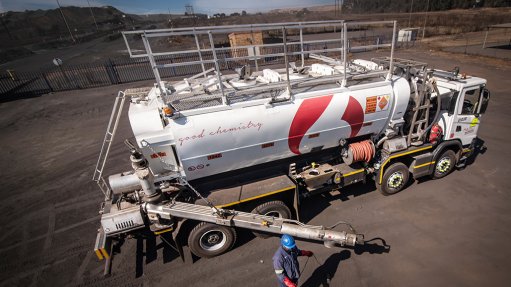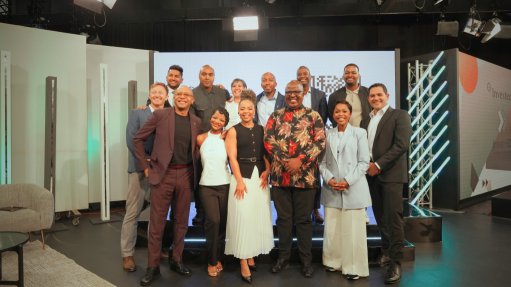Computer technology doing youngsters a major disservice
The other day I phoned my friend. “How are you doing?“ I asked. “Fine,” she said, but sounded a bit strained. I asked her if she was okay. She said fine, fine. She said she was a bit distracted since she was playing the game Black Ops 2 with her 11-year-old son. He was winning. He had shot her 18 times, stabbed her twice and had thrown a hand grenade at her. But she was fighting back.
When I was young, my mother had noticed that I had an interest in electricity and bought me an ‘electrical kit’ for my birthday. This was the most lethal present I have received in my life. The kit had an electromagnet, an electric motor, a voltaic pile and light bulbs and buzzers . . . and an induction coil. Wikipedia describes it thus: “An induction coil is a type of electrical transformer used to produce high-voltage pulses from a low-voltage direct current (dc) supply”.
If we further note that induction coils give off unshielded X-rays and that it was the basis for Nicolai Tesla producing artificial lightning, with discharges consisting of millions of volts and up to 135 ft long, then you can see it is the ideal device for a young boy. How I experimented with it? I gave myself shocks of increasing severity. I tried to see if I could electrify a hand-wash basin full of water (yes, and salt in the water made it easier to do so).
And then . . . I grew up. I am quite sure that my friend’s child, filled with the thrills of Black Ops 1 and Black Ops 2 and probably a hundred other video games, will never find out by experience how an induction coil works. I have noticed that the engineers who work for my practice are a little unhandy when it comes to electrical things. They all did at least one year of electrical and electronic stuff and, since they are qualified, they must have passed those courses. But every so often I ask them something on an electrical topic and I realise that they know nothing about it. Nothing at all.
Then there is engineering history. I do not expect the public to care about electrical and mechanical engineering history. As far as the public is concerned, the only history related to these topics is Windows 10, before which were Windows 7 and 5 and 3 and the XT and AT and, before that, a time of fearful blank in which no laptop computers (and, thus, no video games) existed at all.
However, I do expect young mechanical and electrical engineers to know about electrical and mechanical engineering history. It seems to me ordered and normal to know why we do things in a certain way today in engineering, compared with how it was done in earlier times. This allowed us to at least respect the deep thought that went into earlier inventions. The fact that some things can be done auto- matically is all very well, but I think it is important that people realise how things used to be done. To get this knowledge, you must be interested in things and, to be inter- ested in things, you must be bored to a degree, which forces you to investigate things that interest you.
However, if you watch an endless series of mind candy like videos, all that will happen is that your appreciation of the real world and how it got to be so will be somewhat shallow. There is no harm in this but, these days, it is possible that everybody is living in a world where the younger are becoming more stupid, owing to computer technology. Very possible.
It is a simple fact that if David Livingston had a GPS, he would not have needed to meet Stanley. If the Titanic had a radar, it would not have sunk. But does anybody think that the fact that some people were saved was the result of the Titanic sending out an SOS call? In those days, before the invention of valves, how was Morse transmission possible? Ah, yes, they had a big induction coil on board and generated spark transmissions.
Article Enquiry
Email Article
Save Article
Feedback
To advertise email advertising@creamermedia.co.za or click here
Press Office
Announcements
What's On
Subscribe to improve your user experience...
Option 1 (equivalent of R125 a month):
Receive a weekly copy of Creamer Media's Engineering News & Mining Weekly magazine
(print copy for those in South Africa and e-magazine for those outside of South Africa)
Receive daily email newsletters
Access to full search results
Access archive of magazine back copies
Access to Projects in Progress
Access to ONE Research Report of your choice in PDF format
Option 2 (equivalent of R375 a month):
All benefits from Option 1
PLUS
Access to Creamer Media's Research Channel Africa for ALL Research Reports, in PDF format, on various industrial and mining sectors
including Electricity; Water; Energy Transition; Hydrogen; Roads, Rail and Ports; Coal; Gold; Platinum; Battery Metals; etc.
Already a subscriber?
Forgotten your password?
Receive weekly copy of Creamer Media's Engineering News & Mining Weekly magazine (print copy for those in South Africa and e-magazine for those outside of South Africa)
➕
Recieve daily email newsletters
➕
Access to full search results
➕
Access archive of magazine back copies
➕
Access to Projects in Progress
➕
Access to ONE Research Report of your choice in PDF format
RESEARCH CHANNEL AFRICA
R4500 (equivalent of R375 a month)
SUBSCRIBEAll benefits from Option 1
➕
Access to Creamer Media's Research Channel Africa for ALL Research Reports on various industrial and mining sectors, in PDF format, including on:
Electricity
➕
Water
➕
Energy Transition
➕
Hydrogen
➕
Roads, Rail and Ports
➕
Coal
➕
Gold
➕
Platinum
➕
Battery Metals
➕
etc.
Receive all benefits from Option 1 or Option 2 delivered to numerous people at your company
➕
Multiple User names and Passwords for simultaneous log-ins
➕
Intranet integration access to all in your organisation


















